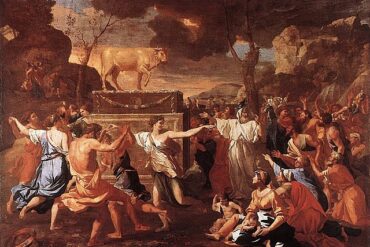Transcript:
Absurdism. Yes, Camus, we were thrown into this world with no explanation. It’s a tough truth to accept. The problem with absurdism is that, I guess, the myth of Sisyphus – it kind of creates a search for something that you cannot attain and therefore it’s kind of absurd. So there’s like, just the whole thing is absurd. Although what’s interesting about absurdism is that even though it doesn’t – it’s like a nihilistic kind of – or existential – concept that sort of denies the possibility of attaining meaning, and yet it is, like, striving, revolting against that. So I would say that absurdism actually holds a sort of secret optimism because it’s secretly saying a part of you does believe that there’s meaning, because otherwise you would not be revolting. So I’m onto you, Camus.
(“Nihilist Lives Don’t Matter” photo) And that is to say, I think that in an ideal reality, when life is like super perfect – that kind of reality would sort of justify itself. So people would probably not feel a need to look for meaning that is out there, like beyond. But the desire for meaning would probably diminish, not because meaning doesn’t exist, but rather because it’s just going to be inherent in life. Nihilism right now is bad because it’s, like, depressing and stuff, and also, I mean it’s life-negating, so not good. But I would save it for the future. You know, maybe in some ideal future, I would join the nihilists one day. I find a lot of “isms” are like that – a lot of utopian ideologies are like that. If you take them and you just put them in another time frame, they actually work, but now, it doesn’t work.
So monotheism is an “ism” that people relate often to Jews because there is a false assumption – or it’s not really an assumption. It’s one of those “common knowledges” that are just wrong. And that is that the Jews are monotheists, and that’s not true. Jews are actually not monotheistic because monotheism is basically trying to negate plurality, like, numerically. And the Jewish conception is that God is beyond is beyond definitions and categorizations, and numbers would be included in that. That’s not exactly what Jews means when they say God is one. Rather, the idea is that there is a fundamental unity between all of existence. That’s the idea of the oneness of god. In that respect, I would say monotheism is true, in that there is a fundamental unity between all things.
Atheism. So atheists are correct in that there is no magical, supernatural being in the sky. There’s no supernatural being. Atheists are also correct about most of their criticisms of religion, such as religions being opium to the masses, or religions playing into the deceptive psychological fears and complexes of human beings and belief in God being a sort of concept that’s open to exploitation. Yeah, most of their criticisms are true, and I’m not even an atheist.
Pantheism. Alright, so the idea that nature is God, basically. So that’s kind of a strange idea, I would say, Mr. Spinoza. I would say nature and reality are an expression or a manifestation of divinity, but yeah, I wouldn’t say that nature is God, even though Spinoza had a sort of, his own understanding of what that means. Nonetheless, I would say it’s kind of odd.
To be continued…





